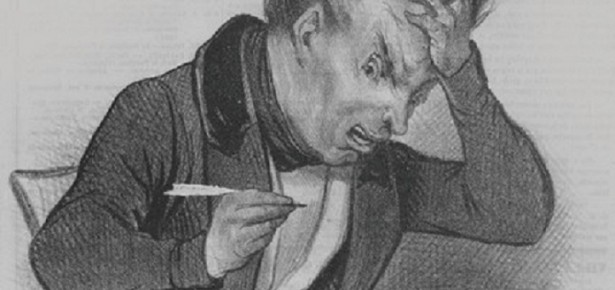
On the morning of May 2, 1837, Théodore Nicolet, Swiss consul, founder of New Orleans’sfirst Francophone Evangelical Church, and international financier, woke up in his mahogany bed. He was probably alone. He was a bachelor in his mid-forties who owned two slaves in their twenties, a cook named Nancy and a servant named Billy.
Nicolet was one among many casualties of one of America’s first worst financial crises.
We can guess that while Nancy prepared his breakfast, Billy helped him perform his morning ablutions. Nicolet washed his face in the bowl of his mahogany washstand and dried it on his towel that hung on his mahogany towel stand. He picked out his clothes from his mahogany armoire and sat on his mahogany sofa or his mahogany armchair. Perhaps he stole a glance at himself in one of his bedroom’s two mahogany-framed looking glasses. He got dressed in a crisp linen shirt, a wool suit, and a flannel waistcoat. He picked out one of his more than forty pocket-handkerchiefs and tied a cravat or perhaps a silk foulard around his neck. He put on his shoes and, after his morning meal eaten at his mahogany table, he walked out of his home on Bourbon Street and to his counting house on Royal Street.
And there he worked through the day and the night of May 2. At some point, he sat on a mahogany armchair and scribbled a note in pencil to an old friend. He left it on his mahogany bureau for his clerk. In the early morning of May 3, still dressed from the day before, he walked to a friend’s property below the city limits. Shortly after noon, as a French letter recounted, Nicolet “s’est brulé la cervelle,” or as a newspaper reported later that day, “he committed suicide by blowing his brains out with a pistol.”
Why did Théodore Nicolet kill himself? Or perhaps more to the point, what caused his death? The newspapers would editorialize on the morality of Nicolet’s actions. Their columns and the letters of New Orleanians reporting on the death of this leading merchant banker all blamed the same cause: “le dérangement des affaires commerciales.” His mind may not have been stable, but neither were the times. They were deranged, crazy, a whirlwind, an earthquake, a tempest. Nicolet was one among many casualties of one of America’s first worst financial crises.
Download the full excerpt here.
Latest Comments
Have your say!